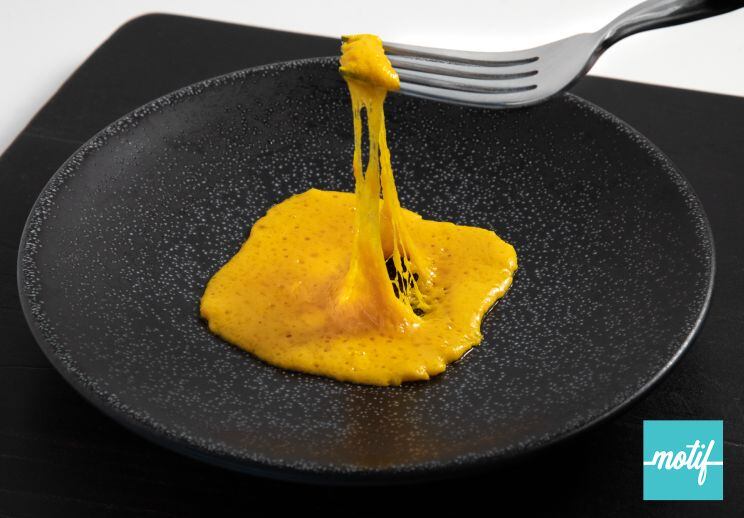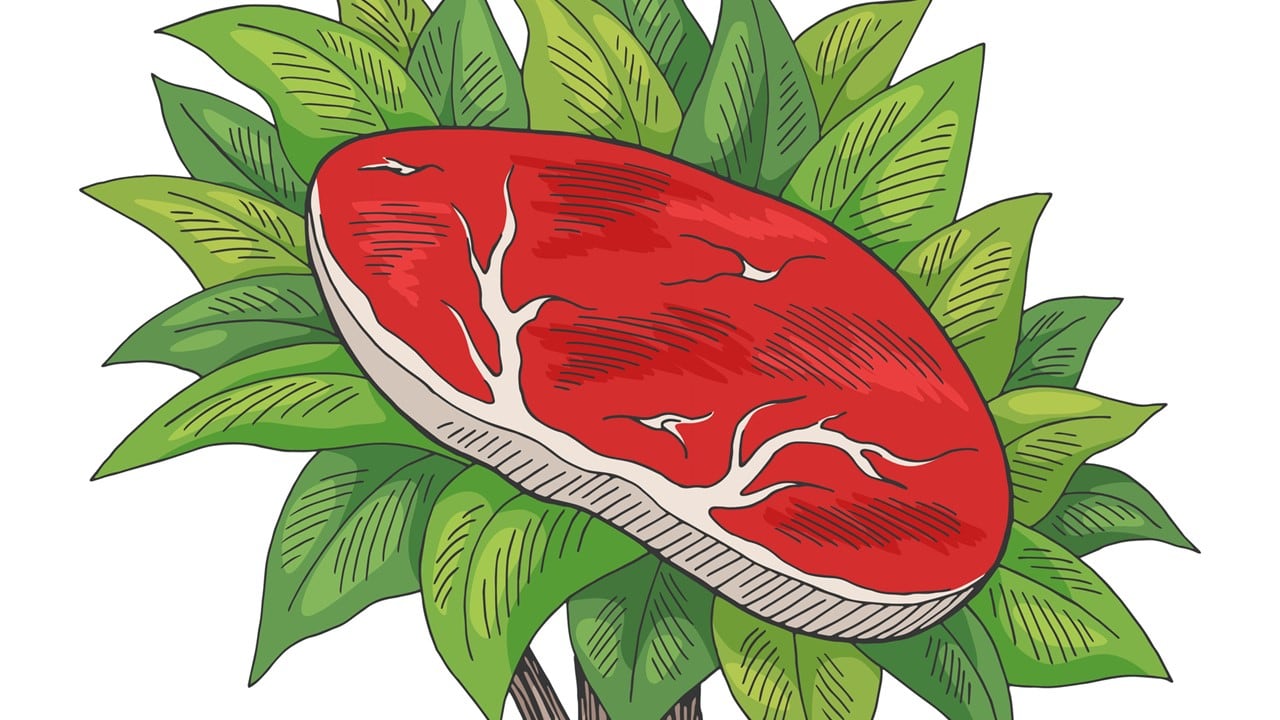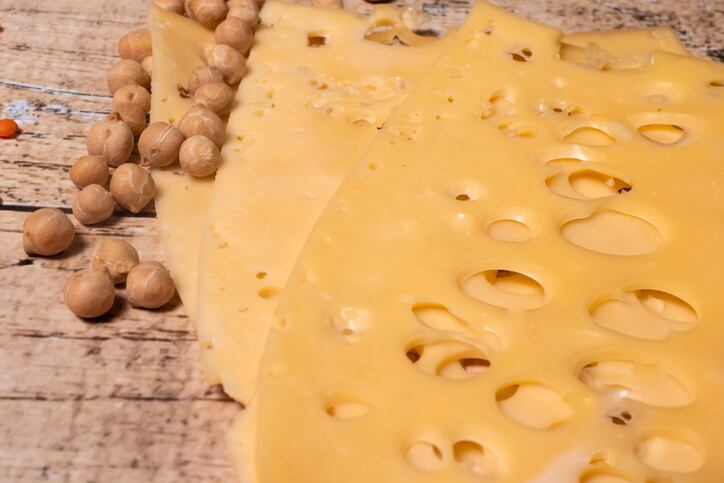“Our model is understanding how we can take plant-based formulations and improve those dramatically with low levels of high impact ingredients,” CTO Mike Leonard PhD told FoodNavigator-USA. “We all know that the plant-based cheese experience today is lacking in a big way, and we believe it's possible to totally change the game."
As for plant-based meat, new technology could make fat work much more effectively within formulations, he said.
Following a collaboration with leading lipids researcher Dr. Alejandro Marangoni, founder of Coasun, Inc, and the University of Guelph in Ontario, Motif has acquired exclusive access to:
Prolamin technology (licensed from the University of Guelph): Using proteins that enable plant-based cheese to "melt, bubble, and stretch."
Extrudable fat technology (acquired from Coasun): Oleogel technology that replicates animal fat, allowing for more authentic fat textures, such as marbling, in plant-based meats.
Plant-based cheese with the melt and stretch of dairy cheese?
The prolamin technology – utilizing a proline-rich fraction of zein, a protein found in corn - radically improves the stretch and melt of plant-based cheese, a major formulation challenge, claimed Leonard.
“Right now, a lot of vegan cheese behaves more like an oily starch paste than actual cheese. There’s been some extensive work to figure out optimal starch blends, and they can provide structure but, again, you're making a hot gel, and that's not what people want.
“So we take that proline-rich fraction and process it in a unique way to use in cheese products to provide that stretch and melt as a function of temperature.
“It all about network structure. What the corn prolamin technology does is help to establish a material network in plant-based cheese that can give you the performance of dairy cheese from a thermal standpoint.”
Oleogel technology could enable co-extrusion of plant-based proteins and fats
The extrudable fat technology meanwhile, could help plant-based meat formulators - who typically use a combination of hard fats such as coconut and liquid oils such as canola or sunflower - to achieve the distinct marbling structures you see in conventional meat, and potentially reduce saturated fat, he said.
“Think about fat marbling in meat, how the fat is intimately connected and interpolated within the protein fibers,” added Leonard, who said most major plant-based burger manufacturers are trying to make fat perform more effectively in formulations.
“Today, there’s no real way to get marbling through extrusion. In high moisture extrusion, you've got your protein blend, you've got your starches, water and so on in there, but if you try to put coconut oil in the front end of an extruder or inject it anywhere, it's going to end up coating the outside of the product and it's not going to partition the right way in there, so it's usually added post process.
“But we are looking at extrudable fats that have elongational properties in extrusion; fat that is able to interpolate with plant-based protein fibers as it extrudes, creating juiciness and structure in the finished product.”
'A good carrier for flavor...'
This involves oleogel technology – deploying plant-based oils, ethyl cellulose, and emulsifiers – whereby liquid oil is effectively trapped within an ethyl cellulose scaffold such that it is solid or semi-solid at room temperature and can be co-extruded with plant-based proteins, creating a “veining and marbling effect,” said Leonard.
Co-processing fat with the plant-based proteins could also improve binding, he said: “It might be more stable in the product so when you heat it up, it won't all leak out. Right now, when you cook a plant-based burger, the oil can leak out and will not be retained in the burger the way animal fat is in a conventional burger.”
He added: “These oleogels have got really interesting applications as they are heat-stable and can be a good carrier for flavor. And so now we're doing all sorts of experiments with whole muscle applications as well as ground meat to see how this works.”
First ingredient emerging from Motif FoodWorks’ bioengineering platform to launch this year
Powered by Gingko Bioworks' bio-engineering platform, Motif FoodWorks (previously Motif Ingredients) was founded in early 2019, and will commercialize its first ingredient – which will “improve the flavor and performance of plant based meat” – by the end of this year, said Leonard.
“And then early in 2022, we'll have another ingredient that will enhance the plant-based meat texture experience.”




